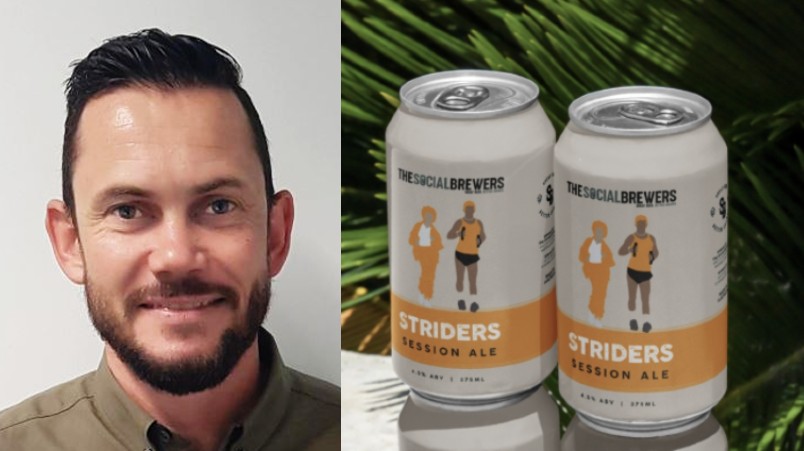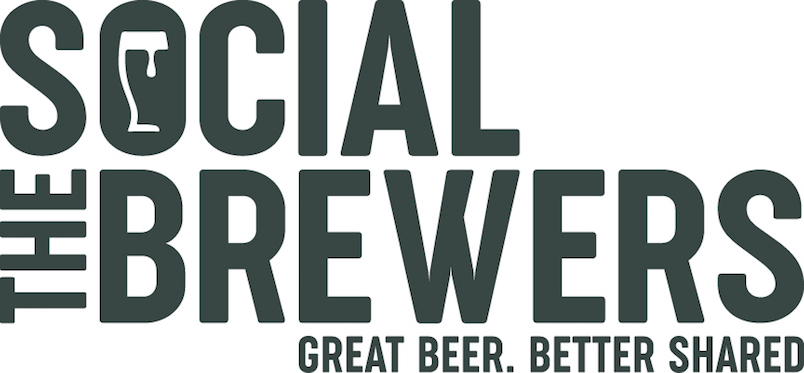After Samsung axe, former media chief Beau Curtis wrests back control of marketing’s four Ps… by starting a brewery

Former Samsung media boss Beau Curtis thinks marketers have been stripped of almost all powers. Of the four Ps, they are left only with promotion, the rest – product, price and place – swallowed up by corporate machinations. So he did the only sensible thing and started a community brewery. Amid a huge trend towards localism and local producers, Samsung's corporate marketing cull could end up being craft beer's gain.
What you need to know:
- After a cardiac arrest three years ago and restructured out of Samsung’s marketing unit earlier this year, ex-media lead Beau Curtis is launching a community brewer.
- A CMO role was increasingly less attractive: “I look at the weight those guys have to carry and…that’s not a life I really want.”
- Marketers “have effectively become advertising people” and product decisions are driven by organisational need, not consumer needs.
- He says the inner city craft beer movement is moving to the suburbs… from Newtown and Marrickville to his in Southwest Sydney where there are no such venues or products. Yet.
- There are no grand ambitions to sell out, rather that The Social Brewers start-up “provides me and my family the lifestyle we want through doing something I enjoy – like the creative process”.
There is no reason why every suburb in Australia shouldn’t have its own brewery.
Refreshing the Ps others fail to reach
Samsung’s former head of media Beau Curtis has turned his back on the corporate grind to start a brewery, aiming to slake a powerful consumer thirst for localism and community-centred brands while wresting back three of the four Ps he says have been stripped away from marketers.
The plan was bubbling away before Samsung took an axe to its corporate marketing department in a power play that also forced the exits of CMO Josh Grace, digital and data chief Mick Armstrong and media partnerships manager, Rebecca Johnston.
After suffering a cardiac arrest three years ago aged 39, Curtis was grimly aware of life’s transient nature. He sought control of his own destiny – and to fill a market need doing something he genuinely loves: craft beer. With council approval for the brewery secured last week, Curtis hopes to pour first pints before Christmas.
You’ve got this forced return to local. Because of lockdowns, area restrictions and work from home, people have become reacquainted with their local market ... People acknowledged how important it is to support local communities under pressure. And that behaviour has really stuck.
Think small: The return of localism
As well as on-site sales, Curtis will also supply direct to local retailers – with even big chains such as BWS now actively promoting their local ranges and seeing sales jump as a result. Localism, is seems, is a strong post-Covid trend.
“You’ve got this forced return to local. Because of lockdowns, area restrictions and work from home, people have become reacquainted with their local market,” says Curtis. “We are starting to prefer to shop local, we’ve got to know the local butcher or café owner that we never really knew before – and that’s a trend that started with the bushfires. People acknowledged how important it is to support local communities under pressure. And that behaviour has really stuck.”
As such, Curtis is not planning to be the next Balter or Stone & Wood – and doesn’t see the likes of Lion making many more craft acquisitions.
“If you launched with the expectation of being bought out, your capital investment is a couple of million of bucks minimum,” he says. “Anyone trying to open a brewery with a national footprint, the minimum production threshold is seen as a million litres a year.”
He’s planning to produce 50,000-100,000 litres in year one. But if Lion or CUB eventually come knocking?
“I’d probably be happy if it gets to that point. But the ambition at this stage is that it provides me and my family with the lifestyle we want through doing something I enjoy – like the creative process,” says Curtis. “I haven’t really been able to get involved in the creative side of marketing. And that’s something I really enjoy – creating something, going through the process of putting it together, have it come out the other end and have someone put that glass to their lips and say, ‘Jeez that’s nice.’ There are not many feelings like that.”

Social Brewers, brewed socially
The brand – The Social Brewers – reflects Curtis’ intent. He aims to brew “three or four” core beers, with the first session ale already produced via local brewery Willie the Boatman. The others will be an IPA and “probably” a traditional English mild and a Hefeweizen, though will change with the seasons.
But Curtis also aims to tap the local homebrew community – with Peakhurst home to one of the largest homebrew shops in NSW.
Meanwhile, another local is Barry Cranston, “who has been a national champion homebrewer for something like 15 of the last 20 years,” says Curtis. The two are members of the same homebrew club, “with Barry trying all of my beers as I’ve developed the recipes,” says Curtis.
“Barry likes to keep quiet about what he thinks about things… But the idea of having a beer on tap that Barry has helped to brew or any of the other guys within that community is really cool. Also, the idea of being able to give back to those guys to split the cost of production, use our kit, create this beer, put it into a commercial format, have it on tap and share the profit….Who doesn’t dream of seeing their beer poured from the tap in their local?
“And if it inspires others to follow their passion and start their own brewery that’s a couple of blocks or a couple of kilometres away, then great,” says Curtis.
“There is a market here that needs to be stimulated. A couple of people have plans for craft beer bars, the local bottle shops all stock a reasonable range of craft, there is demand for it in this area.
“I think there is no reason why every suburb in Australia shouldn’t have its own brewery.”
Amen to that.
